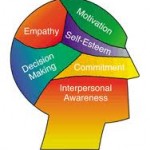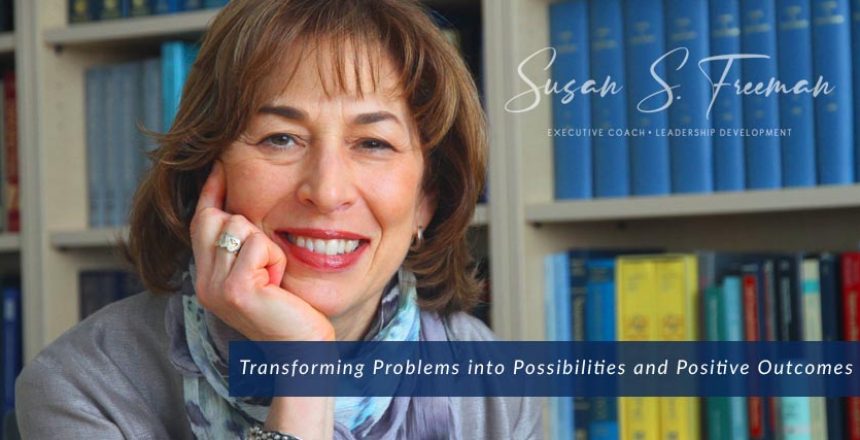 Battling the Sacrifice Syndrome
Battling the Sacrifice Syndrome
This week we continue exploring the important theme of the emotionally competent leader. Our April newsletter, we examined the concept of “resonant leadership.” The resonant leader is one who has developed the emotional intelligence to connect with and sustain relationships with his or her team in order to be able to manage the emotional content of the organization.
Sustaining this level of resonant leadership can be challenging. Added to the normal stress of leadership is a growing list of demands—both internal and external—placed on leaders today. Trying to meet these demands with more and more time and energy, without attending to themselves, leaders can slip into what Boyatzis and McKee call the “sacrifice syndrome.”
The sacrifice syndrome is a vicious cycle in which the stress of sustaining a leadership role, coupled with some unexpected problems or crises, starts someone down a path of burnout. There are numerous physical manifestations, including gastrointestinal disorders, high blood pressure and a weakened immune system. But more importantly, for the leader burnout leads to dissonance, not resonance. Retaining the ability to resonate with your organization requires particular attention to three areas:
 • Mindfulness. This critical skill deals with maintaining awareness not only of what is going on inside yourself, but also to what is going on around you. Boyatzis and McKee are open-minded about the path to mindfulness, from cognitive psychology to Buddhism. Their suggestions include meditation, prayer, exercise, music and being in nature.
• Mindfulness. This critical skill deals with maintaining awareness not only of what is going on inside yourself, but also to what is going on around you. Boyatzis and McKee are open-minded about the path to mindfulness, from cognitive psychology to Buddhism. Their suggestions include meditation, prayer, exercise, music and being in nature.
• Hope. The authors define hope as determining a plan of action based on clearly articulated goals, believing the goals can be met and eventually reaching them with a sense of well-being. Hope can be a profound source of positive thoughts and emotions and through the contagiousness of emotions, in our organizations as well.
 • Compassion. Resonance, ultimately, requires caring about other people; in that sense, it depends fundamentally upon our capacity for compassion. By caring enough about people to try to figure out who they are and why they behave the way they do, the dissonant defenses of prejudice and pre-judgment are replaced with the resonant qualities of understanding and tolerance.
• Compassion. Resonance, ultimately, requires caring about other people; in that sense, it depends fundamentally upon our capacity for compassion. By caring enough about people to try to figure out who they are and why they behave the way they do, the dissonant defenses of prejudice and pre-judgment are replaced with the resonant qualities of understanding and tolerance.
In my work with coaching leaders and influencers, I have consistently found that even the most optimistic and hopeful are often lacking fundamental attention to mindfulness. This critical skill is the wellspring of many other abilities. I have found that when clients begin taking small steps and observing the difference it makes, they are often excited about making it part of their daily lives. We often practice not just the “why” and “what” of mindfulness, but the “how” it applies to daily work challenges. With consistency of application and observation, many of them are getting results they could not have previously achieved.
The Importance of Self-Assessment
 Boyatzis and McKee advocate executive coaching—giving it as well as receiving it—and the use of evaluation tools such as 360-degree feedback, in which you receive input not only from your bosses but also your peers and subordinates. Such techniques are particularly important to ward off the sacrifice syndrome because the accumulation of stress can blunt our ability to see ourselves clearly and identify what may be going wrong.
Boyatzis and McKee advocate executive coaching—giving it as well as receiving it—and the use of evaluation tools such as 360-degree feedback, in which you receive input not only from your bosses but also your peers and subordinates. Such techniques are particularly important to ward off the sacrifice syndrome because the accumulation of stress can blunt our ability to see ourselves clearly and identify what may be going wrong.
“Contrary to popular belief,” Boyatzis and McKee write, “it is not change itself that is so hard; what is hard is being honest with ourselves, looking at ourselves with no filters and admitting that we need to change.”
If these ideas spark your desire to develop yourself as an emotionally competent leader, I invite you to visit my website and schedule a free “Break Through Your Barriers Strategy Session.” It’s the best way to get started; you will learn to flex your emotional muscles for breakthrough results while joyfully influencing others.
Related Links
Primal Leadership by Daniel Goleman, Richard Boyatzis, and Annie McKee

